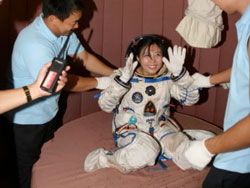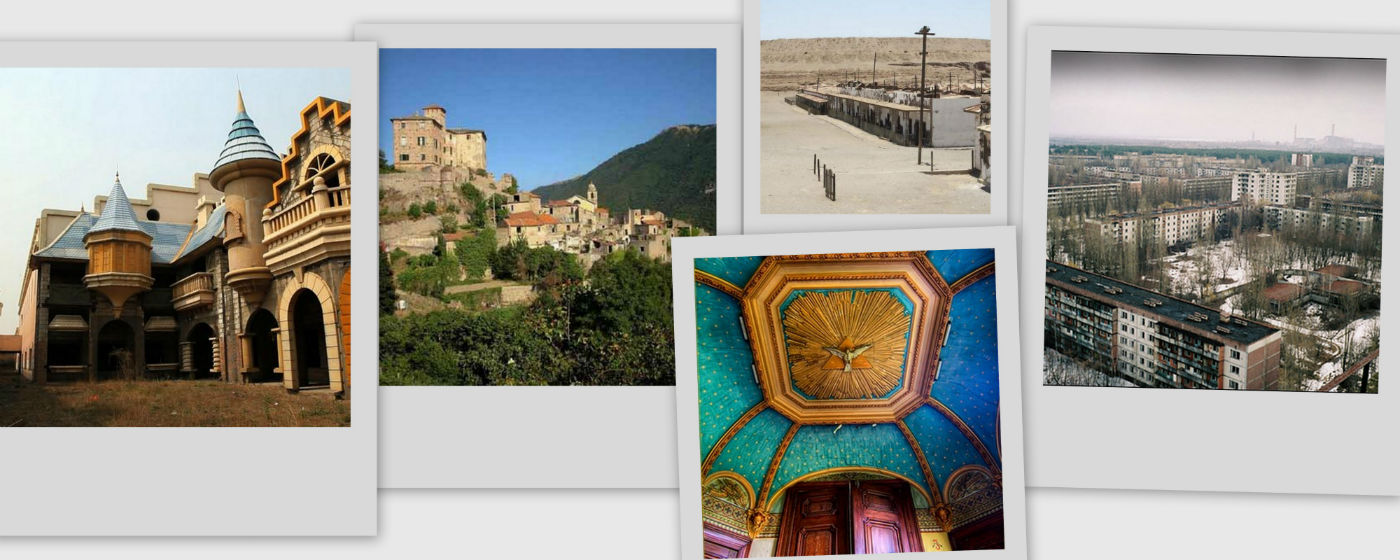I recently lived for a few years in the central region (Chongqing Municipality) of the People’s Republic of China. Here are some tips I learned for living and traveling in the less- or non-westernized regions of China.
1. Your hostel or hotel must be approved for foreigner accommodation. This is true all over China, but you might run into more Chinese-only places in areas where fewer foreigners visit or live. All big foreign-chain hotels are approved for foreigners and JangJiang Inn/Hotel is a nationwide, approved Chinese hotel chain. Using an online hostel finder will usually bring up results for foreigner-approved hostels, and hostels display a plaque if they are approved. However, if you are searching onsite, you might run across a place that refuses to let you stay there. This might be why.
2. You are required to register with the local police within 24 hours of arrival in an urban area and 72 hours in a rural area. If you stay in a foreigner-approved hotel or hostel they will take care of this for you; this means when you check in, they will make a copy of your passport and visa and might ask you which city you arrived from and where you are going next. (Those questions are on the form they fill out to give to the police, but they aren’t always asked.) I was told informally this law was only applicable if you will be there for more than 72 hours, but I was always registered even if I stayed only one night. If you don’t stay in a hotel or hostel, you are responsible for the registration. If you are working, your visa sponsor will usually help you register guests staying with you.
3. The custom in China is to shower before bed, so in smaller hotels or hostels, hot water might be available only at night. A hostel will usually advertise if hot water is available 24 hours a day. I just usually asked when checking in so I could plan my hot water usage. However, electric teapots and/or hot water dispensers are available in every room and/or floor.
4. The Chinese government uses the Yangtze River as a horizontal dividing line for determining who gets indoor central heat and who doesn’t. If you live below the Yangtze, heat is not provided. Foreign business and hotels usually provide their own heat, but restaurants, homes, local shops and work places are not heated. (My work building and apartment weren’t heated.) It got down to about 35 degrees in my city; not freezing, but cold enough to require wearing a coat 24 hours a day in the winter.
5. University campuses have guest hotels (and sometimes foreign student dormitories) on campus they’ll rent out for much cheaper than a city hotel. They aren’t advertised that I’m aware of, but if you go on campus and ask anyone where the hotel or overseas dormitory is, you’ll be directed to it. The front desk will help you.
6. Travel restrictions to Tibetan or Uyghur areas are usually strictly enforced. It can change quickly, so verify before you leave for these areas they are still accessible to foreigners. Your country’s consulate is a good resource for this information.
7. Two common scams:
- If you speak English, an English-speaking local will invite you to go with them to a KTV (karaoke) or teahouse to practice their English with you. They’ll run up a bill of expensive liquor or tea and then take off, leaving you responsible for the bill. (The teahouse/KTV splits the money with the inviter.)
- In a shop, if you pick something up to examine it more closely, you’ll be accused of damaging it in some way. Or, if you walk by a breakable object, it will break behind you and you‘ll be accused of breaking it. The police will be called and you’ll be offered a chance to avoid being arrested by paying large fine. (The police split the fine with the shop owner.)
7. A few miscellaneous tips:
- Beauty salons or massage parlors with pink lights double as brothels.
- Assume KTVs with peepholes instead of windows on the room doors are doubling as brothel/drug spots.
- Be aware your hotel might let the local brothel know your hotel room number; you’ll get a call later that night offering services. I never heard of this happening in a hostel, though.
- Train and long distance bus service is convenient and reliable. The CRH are the newer high-speed train lines and I highly recommend them, when available.
- Giving a taxi driver a cigarette when you get in the taxi can go a long way toward not getting ripped off.
- Locals sit in the front seat of taxis, not the backseat. Getting in the front seat and offering the driver a cigarette can go an even longer way toward not getting ripped off.
- If you think you’re getting ripped off by a taxi driver, write down their license ID number on the dashboard AND the taxi car number on the trunk; you’ll need both to file a complaint. And the driver might stop trying to rip you off if he sees you writing down his ID number. (Ask your hotel/hostel/host how to file a complaint, if needed.)
- It is common for locals you’ve just met to ask you for your phone number or invite you to a meal. (Once while hiking, a friend and I came across a farmer and his wife who gave us snacks and invited us to spend the night at their farm.)
- It might require restraint to stop yourself from zurbittzing the cute baby cheeks, but it can be done. (Barely!)

If you have any questions about of these things or about something I didn’t address, please feel free to ask in the comments and I’ll answer your questions.
 Headlines from The Economist aren’t normally the sort to make you spit out your coffee, but every once in a while they still manage to surprise me with a masterpiece of political absurdity that stands in sharp contrast to their well-sourced (if nevertheless biased) economics and foreign policy coverage. This week’s edition opens with the amazing claim that Mitt Romney has, throughout his primary campaign, been pandering not only to the far right, but to the left as well.
Headlines from The Economist aren’t normally the sort to make you spit out your coffee, but every once in a while they still manage to surprise me with a masterpiece of political absurdity that stands in sharp contrast to their well-sourced (if nevertheless biased) economics and foreign policy coverage. This week’s edition opens with the amazing claim that Mitt Romney has, throughout his primary campaign, been pandering not only to the far right, but to the left as well.






